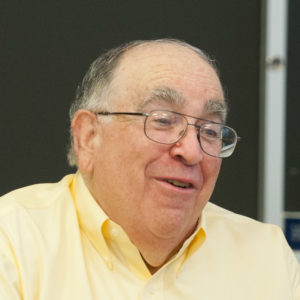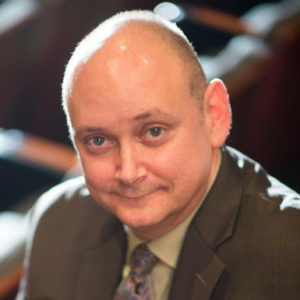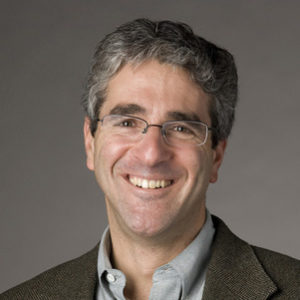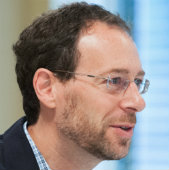Edith Wharton’s The Age of Innocence
Compare America and Europe, aristocracy and democracy, in Wharton's classic novel.
Mondays & Thursdays | Jan. 5, 9, 12, 16 & 19
Online Seminar
Jane Austen’s most beloved novel, Pride and Prejudice (1813), tells the story of the unlikely courtship of Elizabeth Bennet and Fitzwilliam Darcy. Despite what Austen called its “light, and bright, and sparkling” surface, the novel explores thought-provoking issues related to money and matrimony, rank and social class, morality and manners.
Fellows will consider such questions as: does Austen uphold traditional institutions – marriage and class, in particular – against reform and revolution, or does she subtly undermine them? How is the binary of irony and earnestness or sentimentality depicted over the course of the novel? How are familial and romantic relationships developed or obstructed by different attitudes toward expression and communication?
Trailer for the BBC Miniseries
This course meets via Zoom biweekly on Mondays and Thursdays, from 5 to 7 PM ET. Fellows will receive a $150 stipend contingent upon participation in the course and completion of a brief response paper. All course materials will be provided.

Christopher J. Scalia is a senior fellow in the Social, Cultural, and Constitutional Studies department at the American Enterprise Institute, where he focuses on literature, culture, and higher education. Prior to his role at AEI, Dr. Scalia was an English professor with a specialty in 18th-century and early 19th-century British literature.

Christopher J. Scalia is a senior fellow in the Social, Cultural, and Constitutional Studies department at the American Enterprise Institute, where he focuses on literature, culture, and higher education.
A former English professor, Dr. Scalia specialized in 18th-century and early 19th-century British literature. He also spent three years as director of AEI’s Academic Programs department, where he led educational and professional-development programs and events for college students around the country. His articles, essays, and reviews on literature, music, higher education, and other topics have appeared in the Wall Street Journal, the Washington Post, USA Today, Commentary, National Review, First Things, the Washington Free Beacon, the Times Literary Supplement, the Spectator World, and FoxNews.com, among other outlets.
Dr. Scalia is the coeditor of On Faith: Lessons from an American Believer (Crown Forum, 2019), and Scalia Speaks: Reflections on Law, Faith, and Life Well Lived (Crown Forum, 2017). His forthcoming book, Eleven Conservative Novels You Must Read . . . but Probably Haven’t, will be published by Regnery Publishing in 2024.
Dr. Scalia has a PhD and MA in English from the University of Wisconsin–Madison. He has a BA in English with a minor in history from the College of William & Mary.
Readings:
Discussion Questions:
Readings:
Discussion Questions:
Readings:
Discussion Questions:
Readings:
Discussion Questions:
Readings:
Discussion Questions:

Cheryl Miller
Cheryl Miller is executive director at the Hertog Foundation. Previously, she served as deputy director of research in the Office of Presidential Speechwriting and as research assistant to David Brooks at The New York Times. Her reviews and commentary have appeared in such publications as The Wall Street Journal, Commentary, and The Weekly Standard. She graduated from the University of Dallas with Bachelor of Arts degrees in English and Politics.

Ryan P. Hanley
Ryan Patrick Hanley is Professor of Political Science at Boston College. His research in the history of political philosophy focuses on the Enlightenment. He is the author of Our Great Purpose: Adam Smith on Living a Better Life and Love’s Enlightenment: Rethinking Charity in Modernity.

Jenna Silber Storey
Jenna Silber Storey is a senior fellow in the Social, Cultural, and Constitutional Studies department at the American Enterprise Institute (AEI), and co-director of AEI’s Center for the Future of the American University. She is concurrently an SNF Agora Fellow at Johns Hopkins University, and a research fellow at the Civitas Institute at the University of Texas at Austin. She also serves on the executive committee of the Alliance for Civics in the Academy.

Benjamin Storey
Benjamin Storey is a senior fellow in Social, Cultural, and Constitutional Studies at the American Enterprise Institute (AEI), and co-director of AEI’s Center for the Future of the American University. He is concurrently an SNF Agora Fellow at Johns Hopkins University and a research fellow at the Civitas Institute at the University of Texas at Austin.

Paul Cantor
Paul Cantor was the Clifton Waller Barrett Professor of English and Comparative Literature at the University of Virginia. He has written on a wide range of subjects, including Shakespeare, Romanticism, Austrian economics, and contemporary popular culture.

Gregory Weiner
Greg Weiner is President of Assumption University and founding director of the Daniel Patrick Moynihan Center for Scholarship and Statesmanship. He is the author of American Burke: The Uncommon Liberalism of Daniel Patrick Moynihan and Old Whigs: Burke, Lincoln and the Politics of Prudence.

Laurence Cooper
Laurence Cooper is Professor of Political Science at Carleton College. Most of his research has addressed the question of human flourishing—what it is, how we can know what it is, what it requires from education and politics, and the risks that arise from misunderstanding it.

Bryan Garsten
Bryan Garsten is Professor of Political Science at Yale University. He writes on questions about political rhetoric and deliberation, the meaning of representative government, the relationship of politics and religion, and the place of emotions in political life.